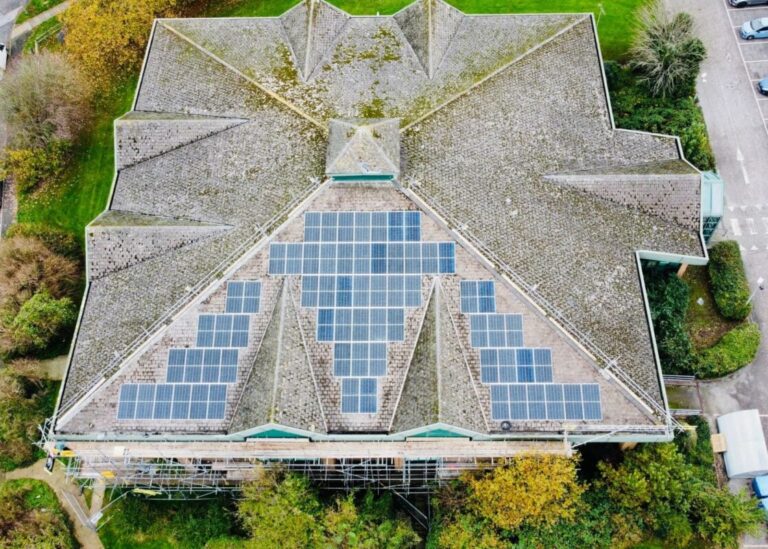Brighton and Hove City Council has announced what it calls the “largest rollout of solar PV to date” on its non-domestic public buildings.
The municipality has committed to installing 730 solar panels in buildings such as leisure centres, offices, a social care institution and a daycare centre. The municipality states that the solar energy on the roof will generate 350,000 kWh annually.
In the largest installation under the initiative, Brighton-based AJ Taylor Electrical Contractors installed 292 solar panels on the roof of the Prince Regent swimming pool. According to the municipality, which did not reveal the total capacity of the plant, 97% of the energy generated will be consumed by the plant. Solar energy portal has contacted for more information.
Solar panels have recently been installed on the roofs of Moulsecomb Community Leisure Centre, Wayfield Avenue Information Center and Roundabout Nursery, while installations at Portslade Sports Center and Hollingdean Family Hub are underway and will be completed by the end of the year will be.
Of Brighton & Hove’s five public leisure centres, five are now fitted with solar panels. Matt Wickham, Chief Operating Officer of Freedom Leisure said: “This is a fantastic step towards supporting our wider objectives of promoting energy efficiency and sustainability in our leisure centres.”
Brighton and Hove City Council said the latest solar installations are the first in its portfolio to be fitted with power optimizers, meaning they all work independently; if one panel is defective, this will not affect the generation of the other panels.
Councilor Tim Rowkins, Cabinet Member for Net Zero and Environmental Services, said: “We are using the roofs of our public buildings to install hundreds of solar panels that generate efficient, cheap, renewable energy that will reduce the running costs of the buildings.
“The installation on the roof of the Prince Regent Swimming Complex is our largest to date and helps decarbonise a particularly energy-intensive facility.”
The council recently published a decarbonisation pathway study, which Rowkins says will see local energy generation help free up grid capacity as the council looks to “deliver more high-impact projects across the city”.
Financing solar energy in the public sector
Brighton and Hove City Council is also developing a pipeline for net zero investment projects, helped by the National Wealth Fund established in October from what was previously the UK Infrastructure Bank, and capitalized by £27.8 billion. Part of the mandate is to work with municipalities to attract private investment to help achieve their clean energy ambitions.
Earlier this year, the final phase of the Public Sector Decarbonisation Scheme, which has funded more than 1,000 projects since 2020, allocated £530 million of public investment for energy efficiency improvements in public buildings.
Solar energy is an important point of attention in the financing provision: 84 projects receive financing for the installation of solar panels on public buildings.


